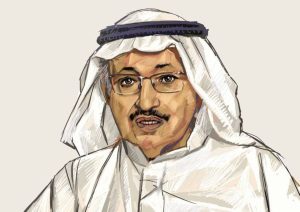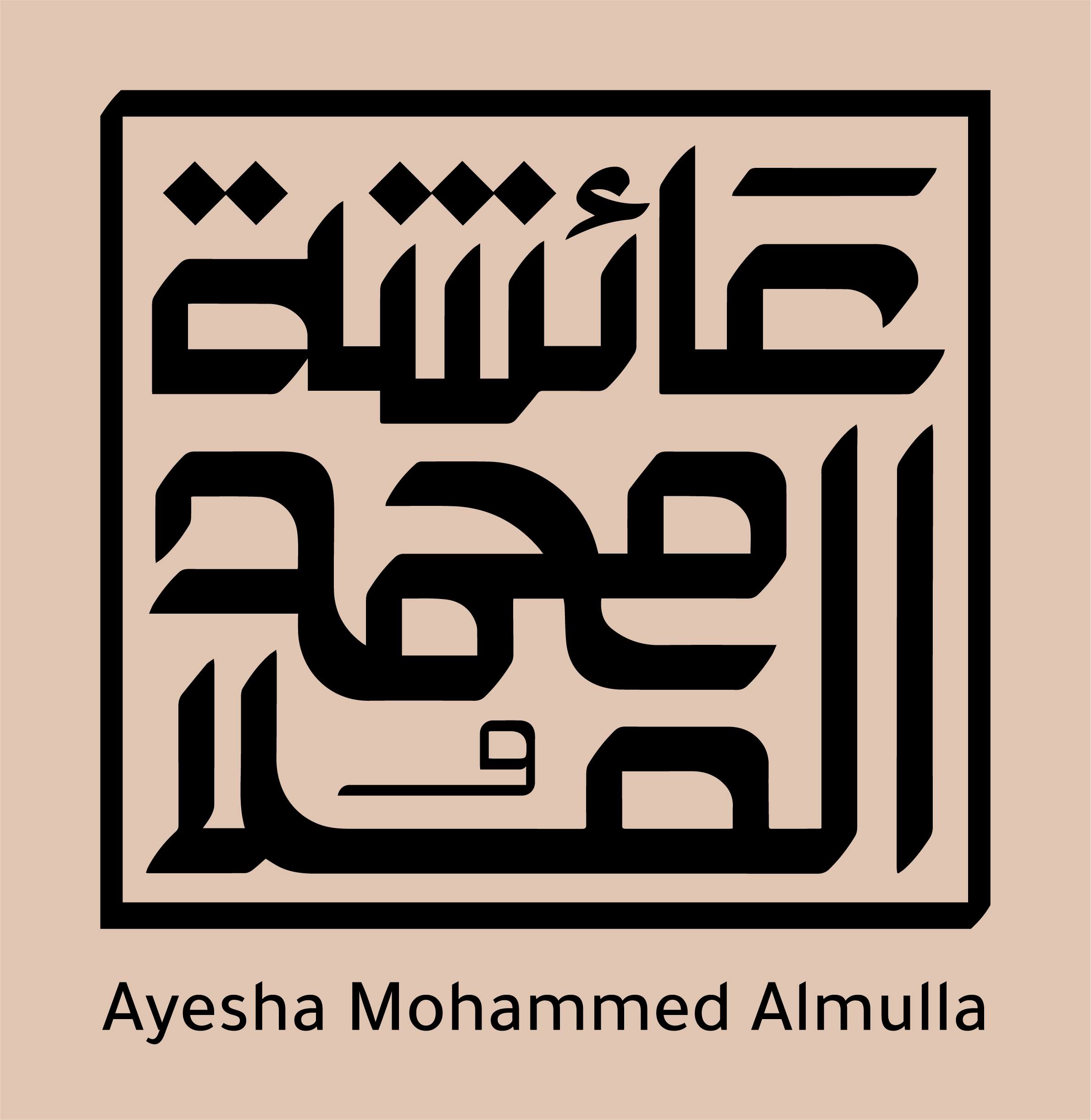The Culture and Science Forum organized a discussion session to discuss the book “Mohammed Saeed Al Mulla: A Shining Biography in the Contemporary History of the Emirates.” Participating were His Excellency Mohammed Al Murr, Chairman of the Mohammed bin Rashid Al Maktoum Library; His Excellency Ahmed Humaid Al Tayer; Aisha Mohammed Saeed Al Mulla; and author Mu’ayyad Al Shaibani. The session was moderated by Ali Obaid Al Hamli, Vice Chairman of the Culture and Science Forum.
The discussion session was attended by His Excellency Saeed bin Mohammed Al Raqbani, Special Advisor to His Highness the Ruler of Fujairah; His Excellency Abdullah Al Mazrouei; Mohammed Ahmed Al Yamahi, Member of the Federal National Council and Speaker of the Arab Parliament; Bilal Al Budoor, Chairman of the Forum’s Board of Directors; writers Abdul Ghaffar Hussein, Qassim Sultan Al Banna, and Ali Al Owais; members of the Forum’s Board of Directors; Professor Dr. Mohammed Sultan Al Olama; Dr. Rafia Ghubash, Founder and Director of the Women’s Museum in Dubai; Dr. Hessa Lootah; Dr. Abdul Khaliq Abdullah; and a large gathering of fans and family members of the deceased.
At the beginning of the session, Ali Obaid Al Hamli highlighted the most prominent features of the late His Excellency Mohammed Saeed Al Mulla’s biography, emphasizing that he was an exceptional, self-made figure who represented a unique model of national work and the building of departments and personalities, becoming a role model for all generations.
He continued, “He was a person who did not believe in failure. He believed that if you accept failure, then failure will lead to success, and you are the one who loses.”
Al Hamli then reviewed the milestones in the late leader’s life and contributions, explaining that he was born in the Shindagha area of Dubai in 1927 and grew up as an orphan. He was raised by his mother, who provided him with a good upbringing. He initially worked in trade and at the Abu Dhabi Planning Council.
He added, “In the first cabinet formation in 1971, he was assigned to serve as Minister of State for Federal and Gulf Affairs and Acting Minister of Electricity. In the second cabinet formation in 1973, the third in 1977, the fourth in 1979, and the fifth in 1990, he was appointed Minister of Transport. Afterwards, he devoted himself to his private business.”

Traits, Values, and Achievements
His Excellency Mohammed Ahmed Al Murr highlighted the social background of Mohammed Saeed Al Mulla, noting that losing his father at an early age was a challenge and a motivation that drove him to overcome life’s difficulties. He grew up in a close-knit family surrounded by supportive relatives who fostered warmth in his relationships and created a strong sense of community around him. Thani bin Abdullah Al Rumaithi and Ali bin Abdullah Al Owais played fatherly roles in guiding him and helping him embark on his commercial journey, as he possessed a keen business acumen from the start.
Al Murr elaborated that Mohammed Saeed Al Mulla was an eloquent speaker and a beloved personality to those around him. He was a trader in cars and gold, established hotels, and contributed to founding the National Bank of Dubai and the Ministry of Electricity and Transport. His awareness was shaped by knowledge, books, and magazines from Egypt and Lebanon.
Al Murr confirmed that Al Mulla stood out not only through his remarkable national and social contributions but also because he did not limit himself to commerce. He actively engaged in public and political service, participating in the early federal governments. He founded, developed, and professionally managed the Ministry of Transport with integrity. Despite the humble beginnings, he learned from various local and regional experiences and was driven by his patriotism and dedication to the nation.
Al Murr added that on a broader level, Al Mulla established the second hotel in the UAE, the second shopping center, and a luxury hospital. Despite numerous obstacles in his career and several health crises, he remained socially engaged and contributed to many endeavors. He loved life and interacting with others, which kept his mind sharp until the very end.
He emphasized how close he was to the late Al Mulla, noting that their meetings were frequent and enduring. Al Murr expressed deep regret that their conversations were never recorded—conversations rich with stories, memories, and events that serve as successful models in the history of the UAE, both in terms of personalities and national milestones.
In turn, His Excellency Ahmed Humaid Al Tayer began his speech with a quote by Ibn Khaldun: “Hard times create strong men, and strong men create prosperity.” He noted that this quote aptly describes the late Mohammed Saeed Al Mulla, who lost his father at the age of two.
Al Tayer mentioned that Al Mulla attended rulers’ councils from a young age and was a regular in the majlis of Sheikh Saeed bin Maktoum, may he rest in peace. He frequently recalled those gatherings and gained valuable insights from the discussions and regional developments shared there.
Al Tayer shared the reflections of contributors to the book discussed during the session, which was introduced by His Excellency Sheikh Nahyan bin Mubarak, Minister of Tolerance and Coexistence. Sheikh Nahyan described Al Mulla as a paragon of dedication, generosity, and achievement—an inspiring model of patriotism and pride in his leaders and country.
Al Tayer also shared the testimony of His Excellency Humaid bin Nasser Al Owais, who said that Mohammed Saeed Al Mulla was an economic encyclopedia and a tenacious man with a rare leadership spirit among Emirati men. The UAE greatly missed him due to his pivotal role in its foundation and development. He served as a vital link between the late Sheikh Zayed bin Sultan Al Nahyan and Sheikh Rashid bin Saeed Al Maktoum in many important matters, earning their full trust and confidence.
Furthermore, Al Tayer cited a statement by Lieutenant General Dhahi Khalfan Tamim, Deputy Chief of Police and General Security in Dubai, who said, “Bu Saeed (Mohammed Saeed Al Mulla) was a genius. He wasn’t just a number among many, but a unique and distinguished figure. His ideas were creative, his presence in the late Sheikh Rashid bin Saeed Al Maktoum’s council was positive, and he was sharp-witted, cheerful, a mentor, and an insightful educator.”
On a personal note, Al Tayer said he benefited greatly from Al Mulla, learning numerous lessons from him, particularly due to Al Mulla’s sharp intellect and memory.
He added that Al Mulla’s commitment to training and developing Emirati human resources yielded significant outcomes in producing capable and educated national talents. He was deeply dedicated to his work and equally attentive to his family. He declined participation in the sixth ministerial formation to focus on his family, social, and business life, yet remained available for any national duty. During his ministerial service, he was known for his integrity and transparency.
A Special Bond
Aisha Mohammed Saeed Al Mulla highlighted the profound legacy her father left behind. She noted that her relationship with her father was unique and deeply personal—she was very close to him, aware of his experiences, and learned much about his life and childhood through conversations with her grandmother Maryam, who raised her.
She said her father often took her along in his work activities and kept her informed about developments. Their relationship resembled that of two close friends. He even sought her opinion on various matters and, despite his demanding ministerial and business roles, always made time for his family.
Aisha explained that her father taught her the principles of effective and fruitful leadership. A successful leader, he believed, must have a team whose members are carefully selected and with whom decisions are shared—rising together as a united group. He emphasized that isolated decision-making does not lead to success.
She also spoke about other core traits of her father, noting his passion for reading and constant encouragement for his children to read and build personal libraries. He was a voracious reader and also loved photography, owning many unique cameras and photos.
In conclusion, Aisha emphasized that despite his frequent travels and busy schedule, her father was keen on being present with the family on all occasions, always dedicating ample time to them.
One of the lesser-known aspects of his life, she revealed, was his devotion to charitable work both locally and abroad, which only became widely known after his passing. He was also committed to continuously supporting and enriching his children’s personalities.
Pioneers of the Economy
Researcher and author Moayad Al-Shaybani explained that the book captures two intertwined narratives: the personal biography of Mohammed Saeed Al Mulla and the story of the place.
He shared that over nearly 40 years of residing in the UAE, he got to know pioneers in the economic, social, and cultural spheres through the majlises of leading sheikhs, business leaders, and community figures in Dubai and across the Emirates. These gatherings, he said, were schools of wisdom and unforgettable life experiences.
Al-Shaybani said he met the late Al Mulla in the majlis of Sultan Al Owais, the majlis of Saif Al Ghurair, and also visited him in his own majlis.
Thanks to his journalistic background, he gained a deep understanding of Al Mulla’s distinctive ministerial approach, which enriched the content of the book.
Al-Shaybani concluded by saying that Mohammed Saeed Al Mulla and his generation represent towering figures—open sources of knowledge shaped by vast exposure, insights, and meaningful interactions, each playing their part without exaggeration or omission.
